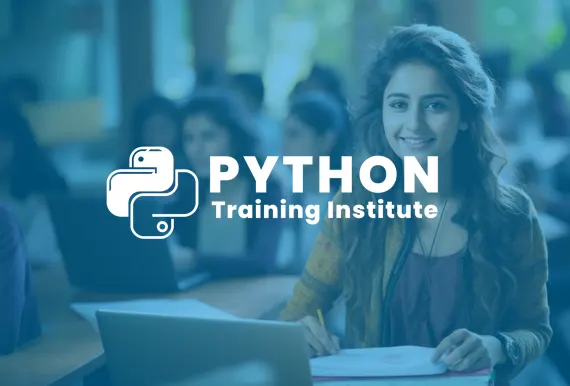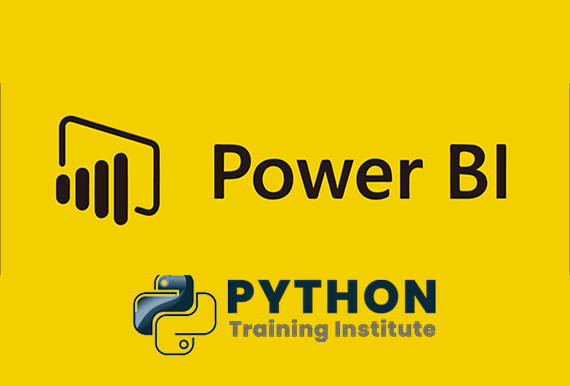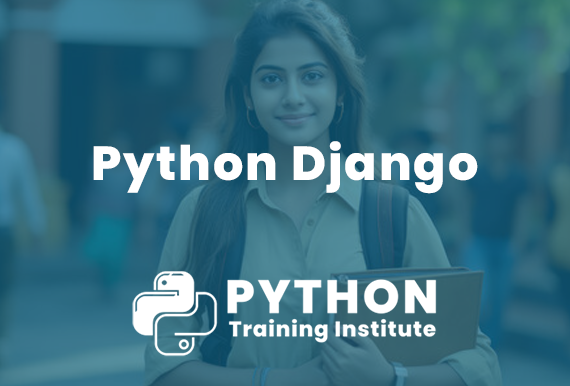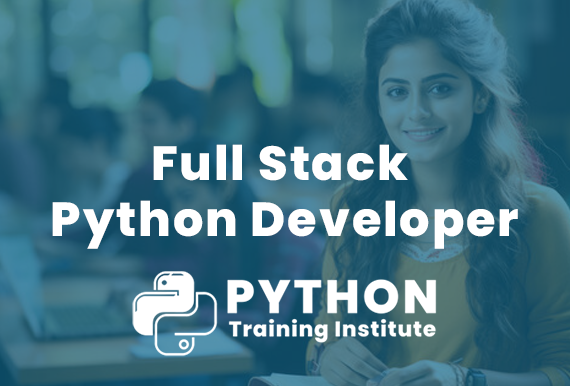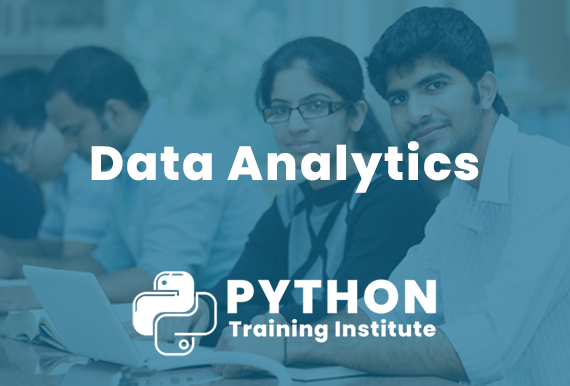Python Django Training in Pune
12,000 Enrolled ⭐⭐⭐⭐⭐4.8 out of 5 Based on 56988 Votes
Learn to build robust and scalable web applications with Python Django in our specialized training program in Pune. This course covers everything from basic web development concepts to advanced Django features, including MVC architecture, databases, and REST APIs. Perfect for developers who want to enhance their skills in Python web frameworks and create dynamic, data-driven websites. Join us to gain hands-on experience and become proficient in Django development.

Python Django Course Training Key Features
Post Training Support
Real Time Projects : 2
Certification & Job Assistance
Course Duration : 2 Months
Hands-on Training
Full Day Lab Access
Get Free Career Counseling
One of our advisor will call you in less than 45 minutes*
Python Django Course Overview
Who's Eligible for the Python Django Course Training ?
About Python Django
Django is a high-level Python web framework that encourages rapid development and clean, pragmatic design. It simplifies building secure and scalable web applications by providing a robust set of tools and features, including an integrated ORM (Object-Relational Mapping) system, an admin interface, and built-in security features. Django is widely used for developing both small and large-scale projects, from content management systems to social networks.
Key Features of Python Django
- Rapid Development: Django’s features help you build applications quickly with minimal code.
- Security: Built-in protection against common web vulnerabilities like SQL injection and cross-site scripting (XSS).
- Scalability: Capable of handling complex and high-traffic websites with ease.
- ORM Integration: Simplifies database management by allowing interaction with databases using Python code instead of SQL.
- Robust Libraries: Includes reusable libraries and components for common tasks like authentication, file uploads, and more.
Who Can Enroll in Python Django Training?
- Students and Fresh Graduates: Aspiring developers aiming to specialize in web development and build real-world projects.
- Working Professionals: Software engineers and developers looking to enhance their skills in web application development using Django.
- Web Developers: Individuals familiar with web development who want to explore the full-stack capabilities of Django and Python.
- Entrepreneurs and Managers: Business leaders seeking to understand web development and create scalable applications for their businesses.
- Non-Technical Individuals: Django’s beginner-friendly approach makes it accessible to individuals with basic programming knowledge.
Python Django training is perfect for anyone looking to specialize in building powerful, secure, and scalable web applications while gaining expertise in a leading Python framework.
Python Django Course Syllabus
Python Django Training Course Content
Django
Module 1: Django Introduction
- Introduction to Django and Django Components
- Installing & Configuring Django Components
- Django Pre-Requisites
- Choosing a Database for Django
- Creating a New Project
- Understanding Django Architecture
Module 2: Django Views
- URL Confs, View Functions, Shortcuts
- Using Decorators in Views
- Handling File Uploads in Django
- File Objects and Storage API
- Managing Files in Django Views
- Class-Based Views: Overview and Usage
- Built-in Display and Editing Views
- Using Mixins in Django Views
- Advanced View Features: CSV and PDF Generation
Module 3: Django Templates
- Basics of Django Templates
- Template Language Overview
- Built-in Template Tags and Filters
- Creating Custom Template Tags and Filters
- Working with Static and Media Files
- Template Merging Using Static and Media Files
Module 4: Django Models
- Introduction to Django Models
- Field Types in Models
- Meta Options for Models
- Writing Queries with Query Sets
- Query Set Methods and Lookup Expressions
- Accessing Related Objects
- Model Instances and Methods
- Introduction to Migrations in Django
- Working with Managers, Transactions, and Aggregation
- Advanced Query Features: Conditional and Query Expressions
Module 5: Django Forms and Model Forms
- Basics of Django Forms
- Form API and Built-in Fields
- Using Built-in Widgets in Forms
- Working with Forms for Models
- Integrating Media in Forms
- Form Sets and Customizing Form Validation
Module 6: Django Session and Cookie Management
- Introduction to Django Sessions
- Types of Session Storage
- Working with Cookies in Django
- Advanced Session and Cookie Management Techniques
Module 7: Django Admin
- Introduction to Django Admin Interface
- Customizing Admin Views and Actions
- Using Django Admin for CRUD Operations
- Advanced Admin Features: Filters, Search, and List Display
Module 8: Django REST Framework
- Introduction to REST APIs
- Installing and Configuring REST Framework
- Creating and Consuming REST APIs in Django
- Serializers and Model Serializers
- Sending and Receiving JSON Data via REST
- Using Postman for REST API Testing
- Security in REST APIs: Basic Authentication, Token Authentication, and Session Authentication
Module 9: Django Security
- Securing Django Applications
- Preventing SQL Injection in Django
- Cross-Site Scripting (XSS) Protection
- Cross-Site Request Forgery (CSRF) Protection
- Using Django’s Security Features
Module 10: Django Authentication and Authorization
- Django User Authentication System
- User Registration and Login Process
- Working with Django’s User Model
- Password Management and Resetting Passwords
- Django’s Built-in Authentication Views
Module 11: Django File Handling
- Uploading and Storing Files in Django
- Working with Binary Files and Images
- Handling Multiple File Uploads
- Media and Static File Management in Django
Module 12: Django Testing
- Introduction to Django Testing Framework
- Writing Unit Tests for Views, Models, and Forms
- Testing Django Applications with Pytest
- Mocking and Patching in Django Tests
- Using Selenium for Functional Testing
Module 13: Django Deployment
- Deploying Django Applications to Production
- Using Gunicorn with Nginx for Deployment
- Setting Up a PostgreSQL Database for Production
- Working with Cloud Platforms (AWS, Heroku, Digital Ocean)
- Using Docker for Django Application Deployment
- Continuous Integration and Continuous Deployment (CI/CD) for Django Projects
Module 14: Django Performance Optimization
- Caching in Django
- Query Optimization Techniques
- Using Redis with Django
- Lazy Loading in Django
- Profiling and Benchmarking Django Applications
Module 15: Django Advanced Features
- Real-Time Features with Django Channels
- WebSockets in Django
- Using Celery for Asynchronous Task Queue in Django
- Integrating Web APIs in Django Projects
- Advanced Routing and URL Patterns in Django
Module 16: Django Project Work
- Project Overview and Introduction
- Developing a Complete E-Commerce Website
- Integrating User Authentication, Cart, and Payment Gateway
- Managing Admin Panel and User Roles
- Handling CRUD Operations for Products, Categories, and Orders
- Final Project Submission and Review
Module 17: Deployment Process
- Overview of Deployment Settings
- Deploying Django on DigitalOcean, Heroku, and PythonAnywhere
- Cloud Hosting with Docker and Kubernetes
- Deploying with Docker Compose and CI/CD Pipeline
Python Django Related Real Time Project
Python Django Related Common Classroom Project List
1. E-commerce Website
- Description: Build a fully functional e-commerce platform that allows users to browse products, add them to their cart, and complete purchases. It includes admin management for products, customers, and orders.
- Key Features:
- User authentication (login, registration)
- Product catalog with search and filters
- Shopping cart and checkout system
- Order history and invoice generation
- Admin panel for product, order, and user management
- Payment gateway integration (e.g., Stripe, PayPal)
- Technologies Used: Django, PostgreSQL, HTML/CSS, JavaScript, Stripe API/PayPal API
2. Blog Website with CMS (Content Management System)
- Description: Create a blog platform that allows users to write and publish blogs, manage comments, and categorize content. Implement a Content Management System (CMS) for easy content editing and admin management.
- Key Features:
- User authentication (blogger registration and login)
- Admin panel for managing blogs, users, and comments
- Rich text editor for blog creation
- Categories and tags for organizing posts
- Comment system with moderation
- User profile management
- Technologies Used: Django, SQLite/PostgreSQL, HTML/CSS, JavaScript, CKEditor (rich text editor)
3. Online Learning Platform
- Description: Build a platform where students can enroll in courses, watch videos, take quizzes, and receive certificates upon completing the course. Teachers can create and manage courses and track student progress.
- Key Features:
- User authentication (student and teacher login)
- Course creation by instructors
- Video lessons with support for media streaming
- Quizzes with automatic grading
- Progress tracking (for both students and teachers)
- Certification generation for completed courses
- Admin panel to manage courses, users, and content
- Technologies Used: Django, PostgreSQL, HTML/CSS, JavaScript, Video streaming API (e.g., YouTube API)
4. Social Media Platform
- Description: Create a social media site where users can create profiles, follow other users, post status updates, like and comment on posts, and send direct messages.
- Key Features:
- User registration and authentication
- Profile management (upload pictures, bio, etc.)
- Feed displaying posts from followed users
- Like, comment, and share features
- Direct messaging between users
- Notifications for activities (likes, comments, follows)
- Admin dashboard for managing users and posts
- Technologies Used: Django, SQLite/PostgreSQL, HTML/CSS, JavaScript, WebSockets for real-time chat
5. Job Portal Website
- Description: Develop a job portal where employers can post job openings, and job seekers can search and apply for jobs. Include resume management and interview scheduling functionality.
- Key Features:
- User authentication (job seekers and employers)
- Profile creation for job seekers (resume upload, skills, experience)
- Job posting for employers
- Job search with filters (location, salary, job type)
- Apply for jobs and track applications
- Interview scheduling between employers and candidates
- Admin panel to manage jobs, users, and applications
- Technologies Used: Django, PostgreSQL, HTML/CSS, JavaScript, PDF generation for resumes, Email integration
Note: We also assist in creating customized projects tailored to your college or university requirements.
Python Django Trainer Profile
Our trainers offer students a dynamic learning experience, encouraging exploration and mastery of subjects through real-world examples. They assist candidates in completing projects, preparing for interviews, and addressing their queries at any time to ensure thorough understanding.
- 10+ years of professional experience in their respective fields.
- Successfully trained over 3,000 students annually.
- Proficient in both theoretical concepts and practical implementation.
- Certified experts with exceptional credentials.
- Well-connected with HR professionals in leading multinational companies.
- In-depth subject expertise, staying updated with the latest industry trends and applications.
- Extensive experience working on real-world projects across various industries.
- Trainers are associated with top organizations, including CTS, TCS, HCL Technologies, ZOHO, Birlasoft, IBM, Microsoft, HP, Scope, Philips Technologies, and more.
Python Django Course Career Benefits
Python has become one of the most sought-after programming languages, especially in the full-stack development domain, due to its flexibility and powerful frameworks. A Full Stack Python Developer course offers career-enhancing opportunities by equipping you with the skills to build dynamic, data-driven applications. Here’s a comprehensive breakdown of how mastering full-stack Python development can significantly impact your career.
1. High Demand Across Multiple Industries
Python’s ability to serve as a full-stack solution has made it popular across various industries, including web development, data science, finance, and healthcare. Python developers skilled in both frontend and backend technologies are in high demand, offering you a broad range of career opportunities. Full-stack Python developers can work on everything from the user interface to the database, making them valuable assets in diverse sectors.
2. Lucrative Career Opportunities
With full-stack Python development, you can access high-paying job opportunities. Due to the growing demand for professionals who can handle both front-end and back-end development, companies are willing to offer competitive salaries. As you specialize in frameworks like Django, Flask, and libraries like React or Angular for the frontend, your earning potential increases significantly.
3. Diverse Job Roles
A Full Stack Python Developer course opens up multiple career paths in various domains. Here are some of the roles you can pursue:
- Full Stack Developer: Build and manage both the client-side and server-side of applications.
- Web Developer: Create dynamic websites and web applications with Python-based frameworks like Django and Flask.
- Software Engineer: Design, develop, and maintain software systems using Python and web technologies.
- DevOps Engineer: Manage infrastructure, deployment, and continuous integration processes in Python-based systems.
4. Global Career Prospects
Python is one of the most popular programming languages globally. Full-stack Python developers are in demand across tech hubs worldwide, from Silicon Valley to emerging startup ecosystems. Whether you’re targeting multinational companies or local enterprises, Python’s universal appeal ensures that your skills are transferable and highly sought after.
5. Ease of Learning and Application
Python is known for its simplicity, making it an excellent choice for developers at all skill levels. Full Stack Python development combines both Python-based backend frameworks (Django/Flask) and modern frontend technologies, ensuring you acquire a complete set of skills. The ease of Python’s syntax, along with the frameworks, allows for quicker learning and real-world application, enhancing your portfolio.
6. Versatility Across Tech Domains
Full Stack Python Development covers multiple areas, ensuring you stay versatile and adaptable in your career. Here are some domains where Python’s full-stack capabilities shine:
- Web Development: Using frameworks like Django and Flask for rapid backend development, paired with frontend technologies like React or Vue.js.
- Data Science & Analytics: Python excels in data analysis and visualization, empowering you to create data-driven web applications.
- Artificial Intelligence and Machine Learning: Python’s vast AI/ML libraries enable developers to build predictive systems and intelligent features into applications.
- Automation & Testing: Full-stack Python developers can automate routine processes and set up continuous testing pipelines for faster development cycles.
7. Career Growth and Advancement
Full Stack Python development positions you to excel in a career with faster growth opportunities. Employers value professionals who can handle end-to-end development, making you an asset for leading projects and teams. Moreover, your knowledge of both frontend and backend development ensures you’re ready for leadership roles and career advancement.
8. Freelance and Entrepreneurial Opportunities
Full Stack Python developers enjoy the freedom of freelance work or starting their own business. The ability to create entire web applications gives you the independence to take on diverse projects or launch startups. Python’s widespread adoption and easy deployment allow for quick prototyping and scalable solutions.
9. Future-Proof Skillset
The tech industry is rapidly evolving, but Python remains one of the most robust, scalable, and adaptable programming languages. Full Stack Python developers are equipped with a future-proof skill set that ensures your relevance in the job market for years to come. The ability to leverage the latest technologies, such as containerization, cloud computing, and microservices, makes Python a long-term career choice.
Python Django Job Profiles and Salary in Pune
Job Profiles, Roles, and Average Salaries in INR
| Job Profile | Role Description | Average Salary (INR) |
|---|---|---|
| Python Developer | Develop web applications, APIs, and software solutions. Optimize and debug code for performance. | Entry-Level: ₹5,00,000–₹7,00,000 Experienced: ₹8,00,000–₹12,00,000 |
| Data Scientist | Analyze complex data, build predictive models using libraries like Pandas and NumPy, and present insights. | Entry-Level: ₹6,50,000–₹10,00,000 Experienced: ₹12,00,000–₹20,00,000 |
| Machine Learning Engineer | Design and deploy ML models using TensorFlow and PyTorch; automate predictive analytics. | Entry-Level: ₹7,00,000–₹10,00,000 Experienced: ₹15,00,000–₹25,00,000 |
| Web Developer | Create responsive websites with Django/Flask; integrate front-end and back-end technologies. | Entry-Level: ₹4,00,000–₹6,00,000 Experienced: ₹7,00,000–₹10,00,000 |
| Automation Engineer | Write scripts to automate workflows; test and maintain automation tools. | Entry-Level: ₹5,00,000–₹6,50,000 Experienced: ₹8,00,000–₹12,00,000 |
| AI/Deep Learning Specialist | Develop deep learning models for tasks like NLP and image recognition using tools like Keras. | Entry-Level: ₹8,00,000–₹12,00,000 Experienced: ₹18,00,000–₹30,00,000 |
| DevOps Engineer | Automate CI/CD pipelines and infrastructure management; integrate applications and systems. | Entry-Level: ₹6,50,000–₹8,00,000 Experienced: ₹10,00,000–₹18,00,000 |
Key Notes:
- Salaries vary based on location, experience, and industry.
- Tech hubs such as Bengaluru, Hyderabad, and Pune typically offer higher packages.
- Certifications and practical experience significantly enhance earning potential.
Python Django Course Exams & Certification
Python Training Institute Certification is recognized and accredited by major global companies worldwide. We offer certifications to both freshers and corporate trainees upon completing the theoretical and practical sessions.
The certification from Python Training Institute holds international credibility and adds significant value to your resume. It enhances your career prospects, enabling you to secure top job positions in leading multinational companies.
Please note, the certification is awarded only after successfully completing the training program and practical project assignments, ensuring you gain hands-on experience and industry-relevant skills.

Python Django Jobs & Placement

Python Django Training Course Review



Why Should You Pursue Python Django Training with Python Training Institute Pune?
- Expert-Led Training: Learn from certified Python instructors with extensive real-world experience, ensuring high-quality education and a strong foundation in Python programming.
- Comprehensive Curriculum: Master Python’s key features, from basic syntax to advanced concepts like data structures, object-oriented programming, and frameworks such as Django and Flask.
- Hands-On Experience: Work on practical, real-world projects that help you build an impressive portfolio, boosting your career prospects in software development and data analytics.
- Flexible Course Schedule: With convenient timing options, Python Training Institute Pune accommodates working professionals, students, and anyone aspiring to learn Python.
- State-of-the-Art Infrastructure: Study in modern facilities equipped with advanced learning tools, provided by a leading training institute in Pune.
- Industry Recognition: Python Training Institute Pune is renowned across Maharashtra, ensuring your certification is valued in major cities like Mumbai, Nashik, Nagpur, Aurangabad, and Kolhapur.
- Local Expertise: Leverage Pune’s thriving tech ecosystem with opportunities for internships and collaborations with top IT companies in the region.
- Boost Your Career in Maharashtra: Whether you’re in Pune, Mumbai, Nashik, or any nearby city, Python Training Institute Pune provides the gateway to a rewarding career in software development, automation, and data science.
- Competitive Advantage: Stand out with training that covers core Python skills and specialized knowledge in frameworks and libraries, making you a well-rounded professional sought after by employers across Maharashtra.
Choose Python Training Institute Pune to kickstart your journey in Python programming and elevate your career in the rapidly growing field of technology, backed by a trusted reputation across Pune and Maharashtra’s top cities.
Mode of Python Django Training with Python Training Institute Pune
Python Training Institute Pune: Flexible Learning Options for All
Python Training Institute Pune provides multiple training modes to suit varied learning preferences and schedules. Whether you’re a student, a working professional, or part of a corporate team, we offer tailored solutions to match your specific needs.
Instructor-Led Online Training:
Learn Python from the comfort of your home with live, instructor-led sessions. This option is ideal for learners from Pune, Mumbai, Nagpur, Nashik, Aurangabad, Kolhapur, and other major cities in Maharashtra.
- Benefit from interactive sessions, personalized guidance, and recorded classes for flexible learning.
- Perfect for those seeking high-quality training without the need to commute.
Classroom Training:
Join Python Training Institute Pune for in-person classes and experience face-to-face interaction with expert trainers.
- Located in Pune, a renowned educational hub, this option is ideal for students and professionals from Pune and nearby areas like Shirur, Satara, and Baramati.
- Enjoy a collaborative and immersive learning environment.
Corporate Training:
Upskill your workforce with customized Python training programs designed for businesses.
- Python Training Institute Pune offers tailored corporate packages for companies in Pune, Mumbai, Navi Mumbai, Thane, Nagpur, and other key cities in Maharashtra.
- Empower your team to stay competitive with Python’s diverse applications in automation, data analysis, and web development.
Benefits for Pune and Maharashtra Regions:
- Local Expertise: Centrally located in Pune, the institute is easily accessible for learners from Mumbai, Nagpur, Nashik, and other cities in Maharashtra.
- Reputation: Known as a leading training provider, our certifications carry significant weight in the local job market.
- Convenience: With online and classroom training options, professionals in areas like Navi Mumbai, Thane, and Kolhapur can easily pursue training without extensive travel.
Choose Python Training Institute Pune for a comprehensive and flexible Python learning experience through Instructor-Led Online Training, Classroom Training, or Corporate Training. Gain the skills you need to excel in Python programming and open doors to a thriving career in technology.
Python Django Related Courses
Python Django FAQ's
Which is the best institute for Python courses in Pune?
Python Training Institute is a top-rated institute in Pune, offering comprehensive Python training with experienced trainers, hands-on projects, and global certification opportunities.
What is Python?
Python is a high-level, versatile programming language widely used for web development, data analysis, machine learning, artificial intelligence, and automation due to its simplicity and extensive libraries.
What is the duration of the online Python course?
The online Python course duration varies based on the program type, typically ranging from 4 to 12 weeks, with flexible schedules to accommodate learners.
What is Python programming used for?
Python programming is used for web and software development, data analysis, scientific computing, artificial intelligence, machine learning, game development, and automation.
What is the average course fee for online Python classes in Pune?
The course fee for online Python classes in Pune ranges between ₹10,000 and ₹30,000, depending on the course content and duration.
Is there a fees installment option available?
Yes, Python Training Institute offers flexible installment options to make learning accessible and affordable for all students.
Will your institute conduct exams for global certification?
Yes, Python Training Institute conducts exams and provides guidance for global certifications to ensure students are industry-ready.
Is Python alone enough to get a job?
Python alone can open numerous job opportunities. However, pairing it with additional skills like data analysis, machine learning, or web development can enhance your career prospects.
Does the course include placement assistance?
Yes, Python Training Institute offers robust placement assistance, including mock interviews, resume building, and connections with hiring companies.
Does the course come with global certification?
Yes, our Python courses come with globally recognized certifications upon successful completion, adding value to your resume.
What are the available payment options?
We accept multiple payment options, including credit/debit cards, net banking, UPI, and installment plans.
Do you offer group discounts?
Yes, group discounts are available for teams or groups enrolling together. Contact us for more details.
What are the various modes of coaching provided by your institute?
Python Training Institute offers multiple modes of coaching, including classroom training, online sessions, and hybrid models to suit learner preferences.
About Us
Follow Us
Subscribe
Copyright 2025 – All Rights Reserved By WebAsha Technologies


